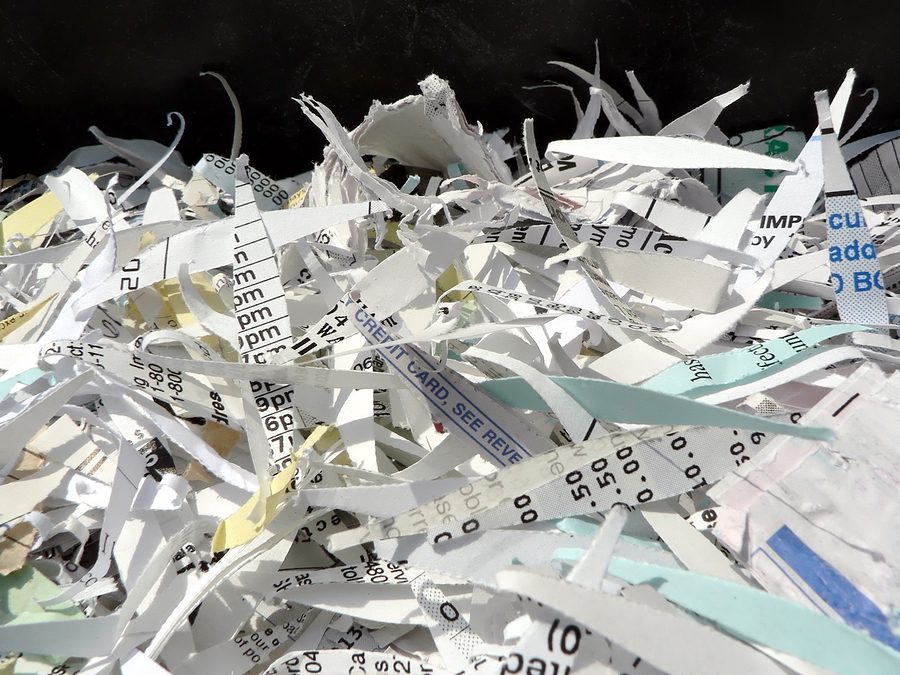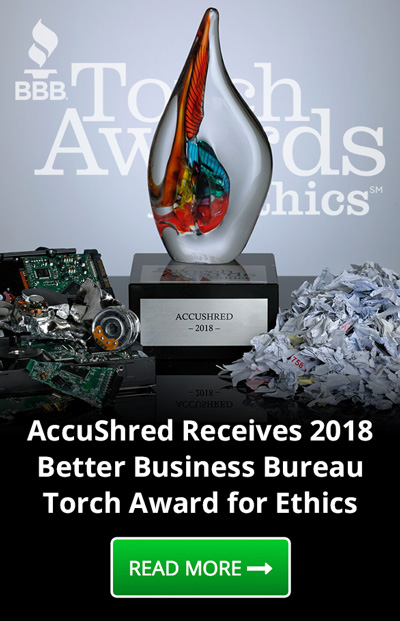Items You Should Be Shredding
When shredding sensitive information to protect your data, you might only be considering your printed paper documents. However, shredding isn’t limited only to paper, and isn’t limited only to the office. There are quite a few things you should be shredding to protect your own personal sensitive information in addition to your business information.

Shred Your Junk Mail…and Some Non-Junk Mail
Most of us consider junk mail something that only comes to our homes, but businesses get junk mail too. Usually we give junk mail a glance before tossing it into the recycling, but it’s important to look through that information and consider shredding instead of tossing. At a minimum, junk mail contains your name and address, but if the mail is an offer for a loan or credit card, they can have plenty of information that is valuable for identity theft. Some thieves will make it a practice to go through trash or recycling bins in the hopes of finding useful junk mail. Birthday cards and birthday offers, though we don’t consider them junk, should also not be casually thrown away. Knowing your birthday, as well as your name and address, can give someone too much information about you. If you’re throwing it away, shred it instead. Any mail offers, especially those with QR codes, should also be promptly shredded.
Travel Documents, Shipping Labels, and Packing Slips
Travel documents are loaded with personal information. Old boarding passes, printed confirmations, copies of your passport, and anything else with identifying information should be destroyed when you are ready to get rid of it. Shipping labels and packing slips may seem innocuous, but they also contain information that can be very valuable to someone determined to get their hands on any personal information.
Post-Its and Notes
It may seem silly to shred your notes and – even more so – your post-its, but how often have you jotted down information that could be sensitive and important? When you are making a note of your login for a new website, information for your banking, or anything else that could be seen as sensitive, it’s better to err on the safe side and shred those too.
Receipts and Old Paperwork
Most people know to shred their receipts after reconciling their accounts, or when the time comes where they are no longer needed for expense documentation or filing taxes. And while many of us are smart enough to shred medical paperwork we no longer need, we don’t always do the same with vet paperwork. When in doubt about whether or not to shred something, just shred it.
USB Drives
Destroying old hard drives is a good start, but many of us store a lot of information on very small flash drives and forget about it. When you no longer need the information on the drive, deleting it from the drive isn’t good enough. Delete, then destroy.
Sometimes it can feel like you’re being overly paranoid, and sometimes it feels like overkill to shred some of these things, but you will never regret taking the extra step to shred. A thief only needs to be right once to make your life very difficult. Take the time and make use of your shredding services, keep your paperwork organized, and remember it’s always better to shred too much than to not shred enough. To learn more about data security and destruction services, contact AccuShred today.








